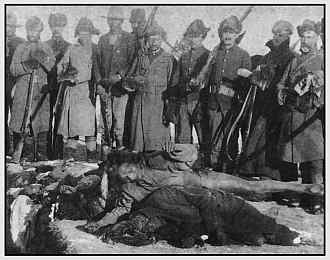Mr. Wagamese cited his mother, who attended residential school as a child and spoke to him not of catastrophic experiences but instead of how she learned to cook and clean and sew, skills he saw reflected in her tidy home.
In broaching the subject of possible good in residential schools, Mr. Wagamese ventured into fraught territory.
It's generally taboo for residential school survivors to speak about their good experiences because they don't want to play down the more common stories of abuse, said Ted Binnema, a history professor at the University of Northern British Columbia in Prince George.
“At a time like this, any person is going to feel some pressure just to be quiet if their experiences were positive in residential schools, not because they're native people but because it's human nature.”
It's not just an emotional need to keep quiet about the positive side of a negative situation. It's a rational strategy. Even if what you're saying is 100% true, people will take it out of context and use it to further their agenda. You'll become an accomplice in a cause you may not believe in.
Look at all the conservatives who try to deny that Euro-Americans committed genocide against Natives. Their goal isn't simply historical accuracy. No, they want to end tribal sovereignty and gaming and force Indians to become plain vanilla Americans. They can't stand the thought of someone who isn't a white male Christian getting even with them.
In this environment, how does it help Indians to acknowledge that, yes, most Indians died of disease, not warfare? Answer: It doesn't. It helps only those who defend the status quo, not those who want to change it.
Moreover, even this "fact" should come with qualifiers. Yes, most Indians died of disease--after they were enslaved, after the strongest members were killed, after their lifestyles were totally disrupted. All these things made them more susceptible to disease than they would've been otherwise.
Similarly, many Indians probably got a good education at their residential schools and went on to lead happy and productive lives. Does that mean they wouldn't have led happy and productive lives if they had stayed on the reservation and gotten a traditional education instead? Who knows? Many decades later, it's impossible to say.
Millions of Canadians ignore or deny the fact that residential schools abused Indians. Millions of Americans ignore or deny the fact that their ancestors committed genocide. We don't need more excuses to ignore or deny these facts. We need more reasons to acknowledge and understand them.


3 comments:
Excellently concise and stated article, Rob. It's refreshing rationality and I was wondering why I haven't seen any of your writings at websites such as globalresearch.ca , commondreams.org , and informationclearinghouse.info , f.e.; but perhaps there are other websites that you do use, maybe counterpunch.org, say, and you clearly have your own blog.
I bookmarked this article for my virtual "library" and will provide links to it or to your blog's homepage.
Mike Corbeil
Hatley Township, Quebec, Ca
P.S. I got the link to this article from grannyRantsOn.blogspot.com , which is also new to me, as of today; and also looks good. I've been primarily using MNN, MohawkNationNews.com for the past few years or so; and I like MNN, but am also glad to have come across these two websites to add to my small collection of bookmarks for Native North American news and views.
You've heard or read about the criminal attack against the Akwesasne people and where Kahentinetha Horn and Katenies were violently treated, Kahentinetha suffered a heart attack, so was sent to a hospital in Ottawa, Ontario, while Katenies was abducted and no one yet knows the location where the police state took her, so where they're keeping her; but if not, then there's an article in the homepage of GrannyRantsOn blog.
Thanks for the kind words, Mike.
I haven't submitted my essays to the sites you mentioned for a few reasons: 1) The subject matter usually isn't timely enough. 2) The subject matter usually falls between the cracks of different categories (entertainment, culture, race, history, politics, etc.). 3) I don't consider myself primarily an essayist. I want to get away from spending most of my time on these time-consuming writings.
But you have a point. If I'm going to write something, I want people to read it. I'll try to make an effort to submit some pieces to sites such as Common Dreams.
P.S. Yes, I've heard about the Kahentinetha Horn situation. I haven't mentioned it here because I don't think it's a pop-culture issue.
I had a chance to talk to one of the last natives who got a traditional education, and I would say that the vast majority of natives would have been far better off if they had stayed home and gotten a 'western' education on top of a native upbringing.
Native culture was thousands of years old, and had the advantage of hundreds of generations of trial and error in learning how to bring up children in a healthy way. Western culture, on the other hand is only a few generations old, and we've been flailing about trying to figure this stuff out -- changing our parenting style almost as often as some hillbillies change their underwear.
On top of that, the stated intention of the residential schools was Cultural genocide. Native children were forcefully separated from their cultural teachings about child-rearing and replaced with an experience that being a child meant being yelled at, beaten, and often sexually assaulted. This has left native parents at an extreme disadvantage in child-rearing.
Post a Comment